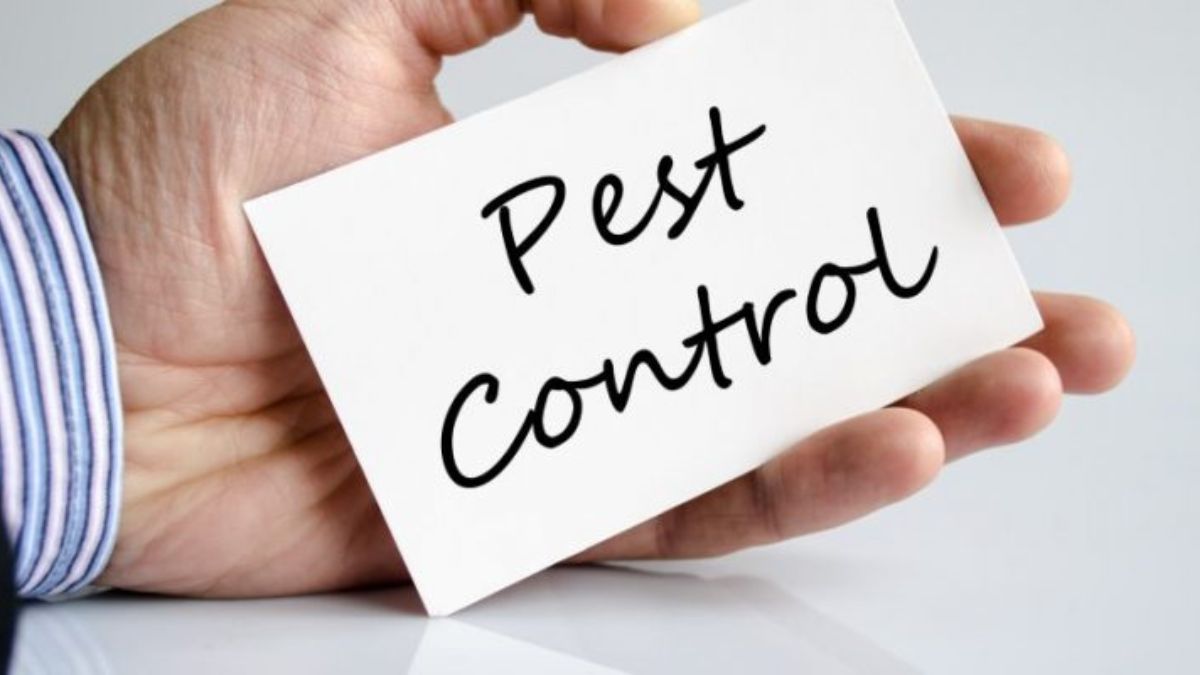TOPIC
Why Hotel Reputation Management Is the Key to Attracting Repeat Guests

In today’s competitive hospitality landscape, managing your online reputation is more critical than ever. A strong reputation builds trust and credibility with potential guests and directly impacts bookings and revenue.
What Is Hotel Reputation Management?
Hotel reputation management involves strategies for hotel owners and managers to monitor, influence, and improve their establishment’s online presence and brand image. This includes engaging with guest feedback, managing online reviews, and utilizing reputation tools to maintain transparency and authenticity. Effective reputation management enhances consumer trust, improves the guest experience, and increases guest loyalty and satisfaction.
Why Is Hotel Reputation Management Important?
Hotel reputation management is vital as it impacts consumer trust and influences potential guests’ decisions. Online reviews and social media mentions can significantly shape a hotel’s reputation, making it essential to maintain a positive brand image to drive bookings and enhance guest experiences.
Building Trust and Credibility: Establishing trust is fundamental in reputation management, as it strengthens relationships with guests and fosters loyalty. Hotels that are perceived as transparent and authentic are more likely to generate positive word-of-mouth and secure repeat business. Engaging with guest feedback—responding promptly and constructively—reinforces a hotel’s credibility. For example, a boutique hotel in New York saw a 30% increase in positive reviews after implementing a system that allowed guests to express concerns during their stay, enabling real-time improvements. Showcasing guest testimonials on websites and social media further enhances brand credibility and optimizes the guest experience.
Increases Bookings and Revenue: Effective reputation management can boost hotel occupancy and revenue by making the hotel more appealing to potential guests. Positive online reviews and active social media engagement increase occupancy rates and give hotels a competitive edge in a crowded market. A solid online reputation can justify premium pricing, as travelers are often willing to pay more for well-reviewed properties. By investing in their reputation, hotels usually see a direct link between positive perceptions and financial growth.
Attracts Repeat Guests: Attracting repeat guests is a key benefit of effective reputation management. Satisfied customers are more likely to return and recommend the hotel to others. Consistently delivering exceptional guest experiences, seeking and acting on feedback, and building trust through transparent pricing and clear communication are crucial. Implementing loyalty programs or exclusive offers for returning visitors and showcasing positive reviews on social media helps build lasting relationships with guests, ensuring they feel valued and appreciated.
How Can Hotel Reputation Management be Improved?
Improving hotel reputation management involves strategies that enhance online presence, responsiveness, and guest engagement. By actively monitoring online reviews and guest feedback, hotel managers can better understand how their brand is perceived and make necessary improvements. Tools like Google, TripAdvisor, and Yelp offer insights into customer opinions, helping hotels address concerns and adapt their services. Responding to positive and negative reviews shows commitment to guest satisfaction and can improve the hotel’s image. Implementing a robust guest feedback system—through surveys, mobile apps, or in-stay kiosks—allows hotels to collect valuable insights and make real-time improvements. Training staff in customer service and reputation management also ensures they can deliver exceptional experiences, positively impacting the hotel’s reputation. Empowering employees to engage with feedback helps foster a culture of continuous improvement and enhances overall guest satisfaction.
What Are the Best Practices for Hotel Reputation Management?
Implementing best practices in hotel reputation management is key to maintaining a positive brand image and ensuring consistent service quality across hotel chains. Partnering with reputation management firms like OnlineReputation.com and ReputationSciences.com can help hotels streamline their efforts by providing expert tools and strategies for managing feedback and maintaining service consistency. Consistency in service is crucial, as it builds customer trust and encourages repeat visits. Hotels can achieve this by establishing standard operating procedures, conducting regular training, and performing quality control audits to ensure guests have a great experience.
Engaging with guests on social media is another effective strategy. This allows hotels to communicate directly, address concerns, and foster positive word-of-mouth by responding to comments, sharing user-generated content, and running interactive sessions. Utilizing online reputation management tools helps hotels monitor feedback, analyze trends, and improve service quality, ultimately enhancing their online presence and drawing in more guests. Encouraging and incentivizing positive reviews, such as post-stay follow-ups or small tokens of appreciation, can also boost a hotel’s reputation, fostering guest loyalty and trust.
What Are the Consequences of Ignoring Hotel Reputation Management?
Ignoring hotel reputation management can have serious consequences, including a drop in guest loyalty and an increase in negative reviews that can damage a hotel’s brand image. Potential guests rely heavily on online reviews and feedback, and failing to manage your reputation can significantly affect business strategies and occupancy rates. Negative reviews can deter potential guests, leading to lower bookings and hurting long-term profitability. Moreover, declining guest loyalty and negative perceptions spreading on social media can further harm a hotel’s reputation. Inadequate responses to criticism on platforms like Google and Yelp can erode trust, making it crucial for hotels to prioritize proactive reputation management. Hotels can protect their brand image and build lasting customer relationships by engaging with guest feedback and addressing concerns quickly.
Conclusion: The Importance of Prioritizing Hotel Reputation Management
Prioritizing hotel reputation management is essential for building guest loyalty and maintaining a positive online presence. By actively managing their reputation and marketing efforts, hotels can boost customer satisfaction, leading to more bookings and increased revenue. In an industry where guests frequently share their experiences online, a reputation is built through consistent service quality and positive interactions. Key strategies include diligently monitoring online reviews and social media mentions, responding promptly and thoughtfully to feedback, and making improvements based on customer suggestions. This proactive approach protects the hotel’s brand and fosters an environment where guest experiences are prioritized, encouraging repeat visits and long-term success in the competitive hospitality market.
TOPIC
Enhance Your Sleep: The Benefits of a Mattress Topper Queen

A tranquil night’s sleep is instrumental for our wellbeing and day-to-day functioning. With the extensive array of bedding accessories available in the market designed to elevate sleep quality, selecting the right one is paramount for individual comfort needs. Among these, a mattress topper queen size has gained popularity for its ability to transcend your sleeping experience to new heights of comfort.
What is a Mattress Topper?
A mattress topper is a removable layer that sits on top of a mattress to provide additional support and cushioning. It’s crafted to enhance the feel of your mattress and can be particularly beneficial if your existing mattress is too firm or if you’re seeking an extra layer of comfort without the expense of purchasing a new mattress.
Offering a Customised Comfort Level
One primary advantage of a mattress topper queen size is that it allows you to tailor the firmness of your bed to your liking. Whether you prefer a softer surface that cradles your body, or something that provides firm support to your back, a topper can make all the difference. They come in various materials such as memory foam, latex, down, and wool, each lending a unique comfort profile.
The Convenience Factor
Queen size mattress toppers are particularly convenient as they are easy to install and can be as simple as laying it over your existing mattress, securing it with your fitted sheet. The simplicity of use and the ability to remove and clean them also make mattress toppers an attractive option for maintaining a hygienic sleep environment.
Enhanced Support and Reduced Pressure Points
Alleviating pressure points while you sleep is vital for preventing discomfort and pain. A mattress topper queen can contour to your body, distribute your weight evenly and reduce the stress on pressure points such as hips, shoulders, and knees. This not only aids in a more restful sleep but also minimizes the tossing and turning that often disrupts it.
Extending Mattress Lifespan
If you’re hesitant to invest in a new mattress, a topper can be an excellent way to extend the life of your current one. By absorbing much of the wear and tear, a topper can save the mattress beneath from the brunt of daily use, potentially delaying the need for a costly replacement.
Temperature Regulation
Many modern mattress toppers are designed with temperature regulation in mind. Memory foam, gel-infused toppers, for example, can wick away heat and help keep you cool during the night. A well-chosen topper can be a game-changer for those who tend to sleep hot.
Cost-Effective Comfort Upgrade
With the price of high-quality mattresses being considerable, a mattress topper offers a more affordable way to revitalise your sleep experience. It’s a cost-effective solution that provides similar benefits to a new mattress at a fraction of the cost, particularly beneficial for those on a budget.
Portability and Versatility
A mattress topper queen can easily be rolled up and stored or transported, making it a versatile choice for those who need an additional comfort layer on the go. It’s perfect for guest rooms, travel, or as temporary bedding during a move.
Improved Sleep Quality and Health Benefits
Improved sleep quality can lead to various health benefits, such as enhanced mood, better cognitive function, and a healthier immune system. A comfortable mattress topper can contribute to a deeper state of rest and thereby, overall health improvements.
Choosing the Right Mattress Topper
When selecting a mattress topper, consider the material that aligns best with your comfort preferences, any allergies, and the level of support you need. Pay attention to the thickness and density, as these will impact the comfort and support the topper provides. Additionally, look for quality certifications that indicate the product is free from harmful chemicals.
The Importance of Proper Care
To maximise its lifespan, it’s essential to care for your mattress topper correctly. Follow the manufacturer’s instructions for cleaning and maintaining it, and use mattress protectors to shield it from spills and stains.
Conclusion
A mattress topper queen size is a valuable addition to any sleep setup, offering a multitude of benefits such as customised comfort, enhanced support, and longevity for your mattress. For those looking to improve their sleep without the significant investment of a new mattress, a mattress topper is an ideal solution.
Consider the myriad of advantages, from mitigating pressure points to cost-effective comfort upgrades, a mattress topper can be a transformative sleep accessory. As many have discovered, the addition of a mattress topper queen to their bedding ensemble is the key to unlocking unparalleled slumber night after night.
TOPIC
Effective Pest Control Strategies for Nowra, NSW Residents

Pest infestation is a significant concern for many homeowners in Nowra, NSW. Not only does it pose health risks, but it can also lead to property damage and spoil the peaceful ambience of any household. Understanding the right strategies for pest control in Nowra NSW is essential for maintaining a safe and comfortable living environment. This article will delve into the various effective pest management techniques tailored for residents of Nowra, with a focus on both prevention and eradication.
Understanding the Local Pest Landscape
The first step in effective pest management is recognising the common pests that inhabit Nowra. Each pest species requires a distinct approach for control and prevention. The region’s climate and natural conditions contribute to the prevalence of a variety of pests, from insects to rodents. Thorough knowledge of these pests, their life cycles, and their habits is fundamental for tailoring the correct control strategy.
Regular Home Inspection
Routine home inspections are critical in the early detection of pest activities. These inspections should encompass both the interior and exterior of homes, paying close attention to hidden crevices, dark corners, moisture-prone areas, and entry points. Homeowners should practise vigilance, spotting signs such as droppings, structural damage, or nests, which typically indicate a brewing infestation.
Sanitation and Maintenance
Sanitation cannot be overstated when it comes to pest control. Pests often invade homes searching for food, water, and shelter. Ensuring that all food is stored away in sealed containers, surfaces are regularly cleaned to remove crumbs and spills, and garbage is properly disposed of can considerably reduce the attraction of pests. Additionally, regular maintenance tasks like fixing leaks, sealing gaps, and repairing damage are essential to eliminate possible pest entry points.
Natural and Chemical Repellents
Both natural and chemical repellents can be effective in deterring pests. For those seeking eco-friendly options, natural repellents such as essential oils, diatomaceous earth, or plants like lavender can be utilized as deterrents. In contrast, chemical repellents and baits can provide a stronger, more immediate impact. However, their use should be carefully managed to avoid potential health risks to humans and pets.
Utilizing Traps
Trapping is an age-old method of pest control that remains effective today. Various types of traps are available, depending on the target pest—ranging from sticky traps for insects to baited cages for rodents. Strategic placement and regular monitoring of these traps can significantly reduce pest populations.
Professional Pest Management Services
While DIY methods are invaluable, certain pest infestations require professional expertise. Engaging a reputable provider of pest control services can guarantee a comprehensive assessment of the issue and the implementation of effective, long-term solutions. Professionals are equipped with advanced tools and knowledge of industry-grade pesticides that can safely and efficiently resolve pest problems.
Integrated Pest Management (IPM)
Integrated Pest Management (IPM) is a holistic approach that incorporates several strategies for sustainable pest control. The aim of IPM is to reduce pest populations to acceptable levels using environmentally sensitive methods, which might include a combination of biological controls, habitat manipulation, and the prudent use of pesticides when necessary.
Educating the Community
Involving the local community in pest management can enhance the effectiveness of control measures. Educational initiatives that inform residents about pest prevention methods, as well as the importance of a coordinated approach, help foster a collaborative environment where shared challenges can be tackled more competently.
Monitoring and Evaluation
Consistent monitoring and evaluation of pest control strategies are essential to determine their efficacy. It allows residents to adapt and refine their approach. Tracking pest sightings, recording the success rate of different control methods and remaining adaptable to the changing environment ensures that pest control measures remain effective throughout the year.
Landscape and Garden Care
Outdoor areas contribute significantly to pest management. The careful selection of plants, regular weeding, and proper disposal of garden waste reduce habitats for pests. Additionally, ensuring that landscaping does not provide easy access to the home is pivotal in preventing pest infestations from taking hold.
Seasonal Pest Control Measures
Pests often have seasonal patterns, where certain times of the year are more conducive to their activity. Recognising these patterns allows residents to implement targeted preventative measures. For example, before the onset of warmer weather, which can bring about increased insect activity, residents might focus on sealing their homes and clearing potential nesting sites.
Collaboration with Local Authorities
Local authorities in Nowra often have pest control programmes in place that residents can participate in or learn from. Keeping abreast with municipal pest management plans allows homeowners to complement their efforts with the broader strategies employed by the community, harnessing synergies for improved overall results.
Incorporating Technology in Pest Management
The use of technology has become increasingly prevalent in pest management. Automated pest monitoring systems, smart traps, and data analytics can provide sophisticated approaches to controlling pest populations. Residents embracing these technological advancements can benefit from greater precision and efficiency in their pest control endeavours.
Final Thoughts on Pest Control in Nowra, NSW
Effective pest control requires a multifaceted approach, integrating preventative maintenance, proper sanitation, and targeted eradication measures. For residents of Nowra, NSW, understanding the local pest landscape and leveraging the support of professional pest control in Nowra NSW services, when needed, is crucial. By combining these strategies with community education and technological tools, homeowners can sustain a pest-free environment and protect their homes and health.
Pest Control: A Collaborative Effort for Community Well-being
Ultimately, pest management is not just an individual concern but one that affects the well-being of the entire Nowra community. By employing these strategies and working together, the residents can enjoy their homes and lives without the undue stress brought about by unwanted pests. With the right knowledge and resources, effective and sustainable pest control is within reach.
TOPIC
Juice Head Vape Juice Flavors: Which Ones Are the Best?

The Juice Head brand has really taken the vaping industry by storm over the last few years. They did that by hitting every segment of the market at once with a wide assortment of both bottled e-liquids and disposable vapes. That way, people could experience Juice Head’s flavor selection regardless of whether they preferred refillable vapes or disposables. Releasing products in both categories at the same time helped to make Juice Head one of the world’s leading vape brands, and that’s exactly what they remain today.
At the end of the day, the success or failure of any vape brand depends on the quality of its flavors – and that’s where Juice Head shines. The brand’s flavor selection has made Juice Head vape juice the talk of the vaping community, and we’re going to introduce the full range of Juice Head flavors to you in this guide.
Not sure which option to try first? Here’s a complete roundup of every Juice Head flavor that you can buy today.
Fruit Flavors
Fruit flavors form the main part of Juice Head’s flavor lineup. They’re so core to the brand’s identity, in fact, that they represent almost everything Juice Head offers. You won’t find any plain tobacco or menthol e-liquids here – even most of the brand’s dessert flavors have fruity elements.
One of the fun things about Juice Head’s fruit flavors is that they’re all available with or without menthol. If you prefer a fruity e-liquid with added ice, just look for the version of that flavor with “Freeze” in the name. If you don’t see the word “Freeze,” it’s the standard version of the flavor.
- Apple Watermelon: All aboard for a trip to your favorite summer orchard! Two of your favorite seasonal flavors – crisp red apple and juicy watermelon – coexist here in perfect bliss, giving you a delightful dose of refreshment with just a bit of complexity to keep you interested.
- Blueberry Lemon: Every once in a while, an e-liquid company releases a flavor that transcends the brand and becomes one of the most popular flavors in all of vaping. That’s exactly what has happened with Blueberry Lemon, which is easily the most popular Juice Head flavor that you can buy. If you haven’t tried anything from this brand yet, Blueberry Lemon is definitely the one that you should grab first.
- Guava Peach: Guava Peach is a bit of an east-meets-west flavor, which is a theme that you’ll see often across the Juice Head product line. Guava has a taste that’s rich and slightly musky, and it pairs really well with this flavor’s crisp peach note.
- Mango Strawberry: Mango and strawberry are probably the most popular of all fruity notes in vaping, so why not combine the two? The sweetness of Juice Head’s mango base is perfectly offset by the addition of the slightly tart strawberry.
- Orange Mango: A great mango vape is even better when it’s combined with a flavor that provides a little tang, and that’s exactly what you’ll get here. The orange note brightens the overall flavor profile, creating an experience that’s absolutely irresistible.
- Peach Pear: What’s your favorite juicy summer tree fruit – peach or pear? With Juice Head’s Peach Pear flavor, you won’t have to decide because you can enjoy both of them at the same time.
- Pineapple Grapefruit: Here’s a tropical offering from Juice Head with an extra touch of tartness for anyone who appreciates a vape juice with a sour side. Pineapple and grapefruit are both fairly tangy, but there’s no need to feel overwhelmed because Pineapple Grapefruit has plenty of sweetness on offer as well.
- Pineapple Guava: Pineapple Guava is a flavor from Juice Head that has a good amount of complexity thanks to the nice balance of tangy pineapple and sweet, rich guava. If you appreciate a vape flavor with a tropical vibe, you’ll definitely be a fan of this one.
- Pineapple Orange Guava: This flavor riffs on the classic Hawaiian POG beverage by replacing the traditional passionfruit with pineapple for an experience that’s fresh and different but still unmistakably tropical.
- Strawberry Kiwi: Everyone’s favorite bottled juice in vapor form. You know that you always grab the kiwi-strawberry juice when you walk by the refrigerators at the market; here’s an opportunity to enjoy the same experience without the massive quantity of sugar.
- Watermelon Lime: Most of Juice Head’s fruity flavors provide just a little bit of tartness, but this one is skewed a bit more in that direction. It’s an incredibly refreshing experience.
- Watermelon Strawberry: Why force yourself to choose between watermelon and strawberry when you can enjoy them both at the same time?
Dessert Flavors
While a great fruity e-liquid often has a blend of sweet and sour elements, it’s more common for dessert e-liquids to tend toward the sweeter side of the flavor spectrum. Although Juice Head focuses on fruity flavors with the majority of their flavors, they do have several delicious dessert options for people who prefer a more decadent vaping experience.
- Cake Batter: One of the only Juice Head flavors that doesn’t include a fruity note, Cake Batter proves that this company’s brilliant mixologists can succeed at absolutely anything.
- Fruity Cream: During the height of summer, there’s no better way to enjoy the bounty of the season than by enjoying a simple dessert of fresh fruit with a bit of whipped cream spooned on top. Juice Head’s Fruity Cream flavor recreates that experience flawlessly.
- Strawberry Cream: How can something so simple be so unbelievably delicious? Juice Head’s Strawberry Cream flavor combines a smooth, decadent cream base with a top note of juicy strawberries to deliver the ultimate dessert experience.
- Sweet Cream: If you think that Juice Head’s cream note is good enough to enjoy on its own, this is the flavor for you. Smooth, decadent and complex, Sweet Cream is the ideal flavor to choose when you’re ready to sit back and relax at the end of the day.
Beverage Flavors
Although Juice Head has just one beverage flavor available at the time of writing, it’s a great one. It’s also available with or without menthol. If you want ice, just look for the version that has “Freeze” in the name.
Raspberry Lemonade: Have you ever tried a vape that seemed almost tasty enough to drink? If not, Raspberry Lemonade will definitely make a believer of you. Tasting almost like a pink lemonade, this is a super juicy flavor that more than lives up to the Juice Head name.
-

 TECHNOLOGY3 weeks ago
TECHNOLOGY3 weeks agoTop 10 Must-Read Stories from Kristen Archives You Can’t Miss
-

 TECHNOLOGY6 months ago
TECHNOLOGY6 months agoSky Bri Net Worth Revealed: How She Built Her Financial Empire
-

 TOPIC8 months ago
TOPIC8 months agoBasement Renovation Contractors: How They Tackle Structural Issues During Renovations
-

 TOPIC3 months ago
TOPIC3 months ago5 Reasons the //Vital-Mag.Net Blog Dominates Lifestyle
-

 TOPIC1 month ago
TOPIC1 month agoTop 10 Articles from the ://Vital-Mag.net Blog That You Can’t Miss
-

 CRYPTO5 months ago
CRYPTO5 months agoCrypto30x.com Review: Is It the Right Platform for You?
-

 BUSINESS3 weeks ago
BUSINESS3 weeks agoTraceLoans Explained What You Need to Know
-

 BUSINESS1 month ago
BUSINESS1 month agoDecoding the Kennedy Funding Ripoff Report: Facts vs. Fiction
